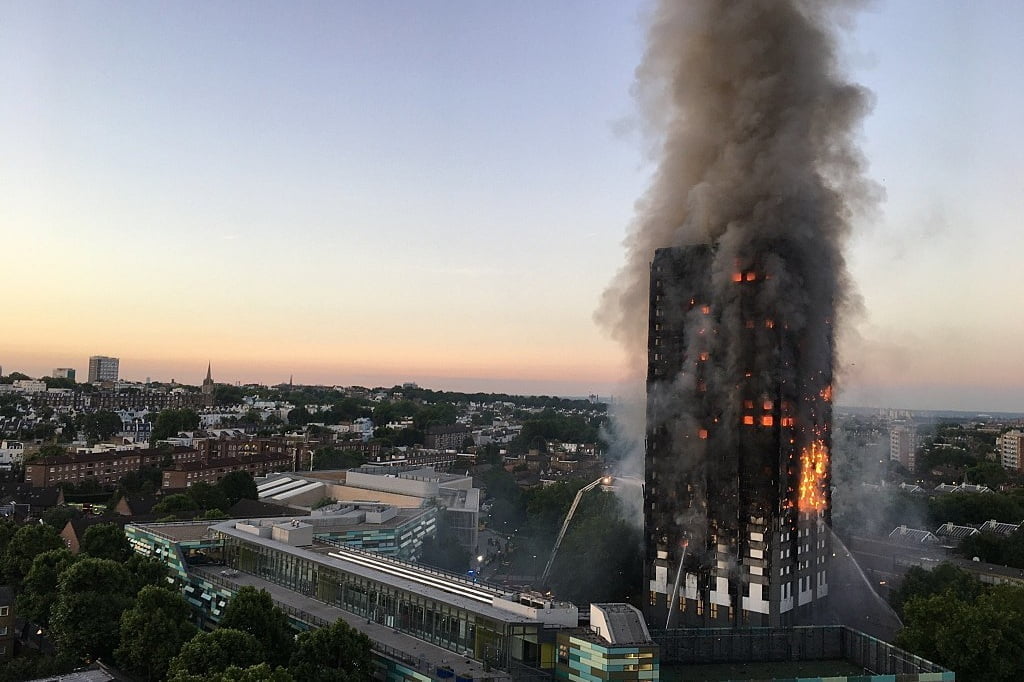One year on, the victims of the Grenfell fire are still fighting for justice. But there are some who choose to defend the criminal actions of those responsible.
Written to coincide with the opening of the Grenfell fire inquiry, Andrew O’Hagan presents The Tower. In this 60,000 word essay, O’Hagan attempts to absolve and excuse the guilty, directing his hatred instead towards the fire service and those who have fought for justice for the victims of this tragedy.
The book is being bought and gifted by Kensington and Chelsea (K&C) council to all its Conservative councillors. And it is no surprise why. The majority of the article is dedicated to defending councillors Rock Feilding-Mellen and Nick Paget-Brown, the Tory council, and the Kensington and Chelsea Tenant Management Organisation (TMO). O’Hagan dedicates most of the article to interviews with the above individuals and to defences of their characters.
The author leaves some room, however, to blame the fire service and to demonise Grenfell United, which represents 80% of the survivors. Also demonised are Edward Daffarn, who survived the fire and had warned of the fire risks, and Joe Delaney, a local resident made homeless by the fire, who is a leading activist from the Grenfell Action Group. O’Hagan even manages a bit of Stormzy and Lily Allen bashing for good measure.
But the article lacks any actual analysis. It is, in short, a distortion of the truth.
The fire service
Writing in the Guardian, Matt Wrack, general secretary of Fire Brigades Union (FBU), responded to O’Hagan and his slanders.
“They (the firefighters) do not deserve, and they can do without, armchair critics such as the writer Andrew O’Hagan, editor-at-large of the London Review of Books, telling them “the firefighting effort wasn’t all that it could have been”.
They can do without the Sunday Times columnist Sarah Baxter saying “the fire brigade certainly let people down”, seeming to regard firefighters as “jobsworths” who “stick to the rigid demands of bureaucratic protocol” and bow to “the bureaucratic gods of health and safety”…
We await the findings of the public inquiry, but it has been clear from the earliest accounts of that night that firefighters faced an unprecedented catastrophe and they responded by going above and beyond the call of duty. Normal working procedures that are in place to keep firefighters as safe as possible while tackling fires could not be applied. Firefighters adapted what they did in order to maximise the number of people they could rescue. Firefighters themselves do not use the term “heroic”, but I have no hesitation in calling their actions that night just that.”
We have nothing else to add in reply to O’Hagan on this question.
Excusing the guilty
Tory councillor Nick Paget-Brown is represented in The Tower as being of dignified character. He is presented as wanting the best for everyone. It is claimed that he is reluctant to defend himself, as this would apparently be uncouth. Paget-Brown’s only crime, according to O’Hagan, is not having a sufficiently large PR operation.
But this is simply not true. Paget-Brown has publicly defended himself; for example, appearing on Newsnight days after the fire, when asked about the retrofitting of sprinklers. The Tory councillor incorrectly claimed that most residents didn’t want sprinklers. But this statement backfired tremendously when he was called out for attempting to lay the blame on the residents themselves.
Likewise, Rock Feilding-Mellen, the deputy council leader in charge of housing, is presented as being upright and honest.
“Why would I spend 11 years working in local government, rather than, for example, working at Goldman Sachs, if I didn’t care about the people I was there to help and didn’t believe in the improvement of their conditions?”
But the salaries for those in the cabinet of K&C council are larger than that of MPs in parliament – so where’s the sacrifice?
Little information is provided to defend Rock Feilding-Mellen other than his own account. But Feilding-Mellen has wined-and-dined in the past with Peter Bingle, a man who made his fortune convincing councils to sell off assets to wealthy clients. Feilding-Mellen has also previously worked for property developers himself, and is suspected to have had ambitions in this area.
Indeed, 1-in-10 London councillors have direct links with property developers. The idea that these councillors are only motivated by the goodness of their hearts – an idea claimed by the friends of Nick Paget-Brown and repeated by O’Hagan – is ludicrous. The state and private enterprise are connected by a thousand threads.
In order to defend the Tory K&C council, O’Hagan attacks a straw man. He suggests that activists and residents were claiming that the councillors wanted to kill the occupants of Grenfell because they hate the poor.
But this was never argued. Rather, the Tory councillors simply didn’t care. They ignored residents, ignored fire safety, and have presided over a policy of managed decline for years. It was not active malice, but neglect, indifference, and arrogance – paving the way for social cleansing, motivated by money.
When presented with evidence of the council’s callousness, O’Hagan only manages to state that “there was no homicidal intent”.
Managing decline
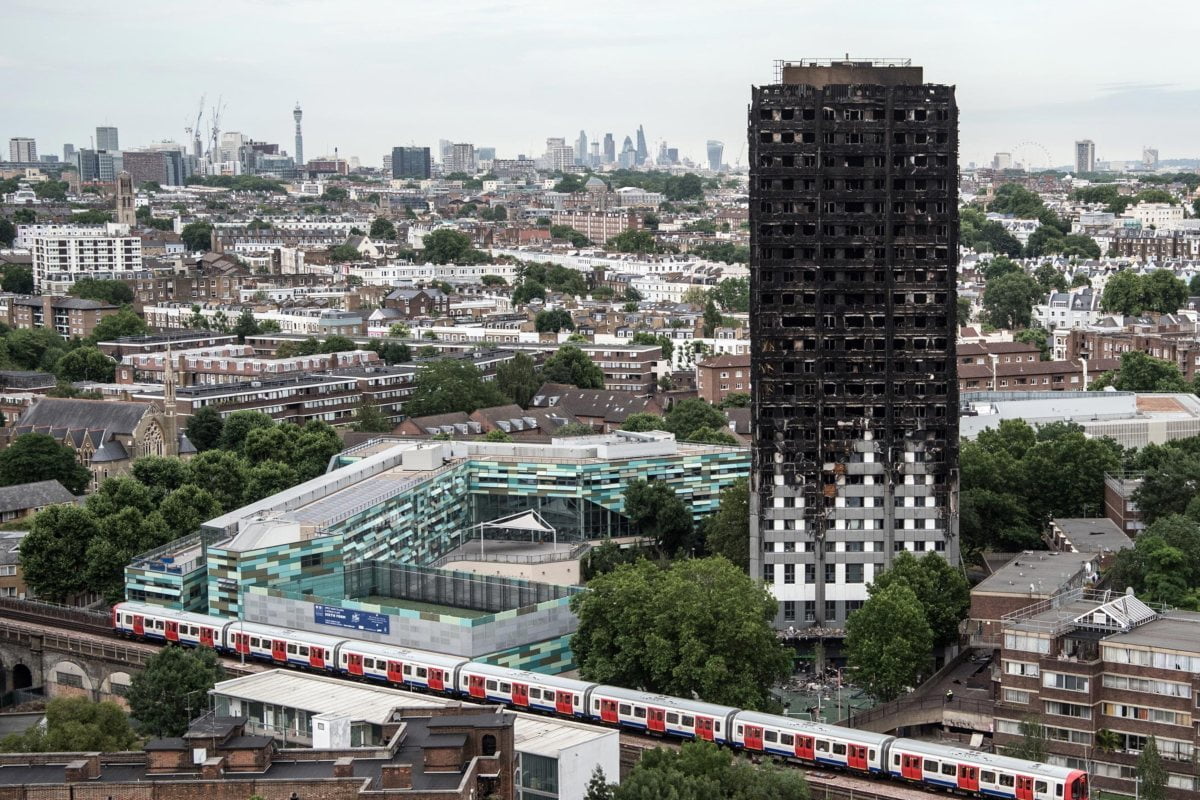 After trying to clear the council and the TMO of any responsibility for events leading up the fire, O’Hagan then proceeds to respond to criticism of the council’s actions after the fire.
After trying to clear the council and the TMO of any responsibility for events leading up the fire, O’Hagan then proceeds to respond to criticism of the council’s actions after the fire.
The essay’s author speaks of the 350 council workers mobilised after the fire and their self-sacrifice. He speaks of Paget-Brown working so “tirelessly” that he neglected to publicise his efforts. And yet committees of councillors still had the time to pass emergency planning applications the day after the fire, whilst maintaining their distance from Grenfell.
No doubt there were social workers and housing officers who worked tirelessly 24/7 in order to deal with the aftermath of the fire.
Indeed, I have my own knowledge of social services in K&C: my own mother worked as a foster carer for 25 years, and then as a contact supervisor for another five years. She saw how social workers are overworked and burnt-out, gradually replaced by younger and more inexperienced workers straight out of university.
She also saw the change of management brought in to carry out efficiency savings. She witnessed the atmosphere of fear as employees worried about their jobs in the Tories’ new hostile environment. Not willing to be pushed around at the age of sixty, she was labelled a troublemaker for speaking out. She was never fired, but she had her hours reduced to zero.
By the time of the Grenfell disaster, the local council had become a hollowed-out shell. The council has a long history of subcontracting out its services to the voluntary sector; a sector that the council leaders thought could provide services on the cheap, since charity workers and volunteers do not have the same hard-won benefits as council employees.
The local council was consciously reducing local government to a husk, with the level of services far below what is necessary. The council leaders saw this ‘small government’ of the ‘big society’ as a good thing.
This explains why a recent report by Muslim Aid found that the response to the fire was “badly flawed”, contradicting O’Hagan’s assertions.
Demonisation of local activists
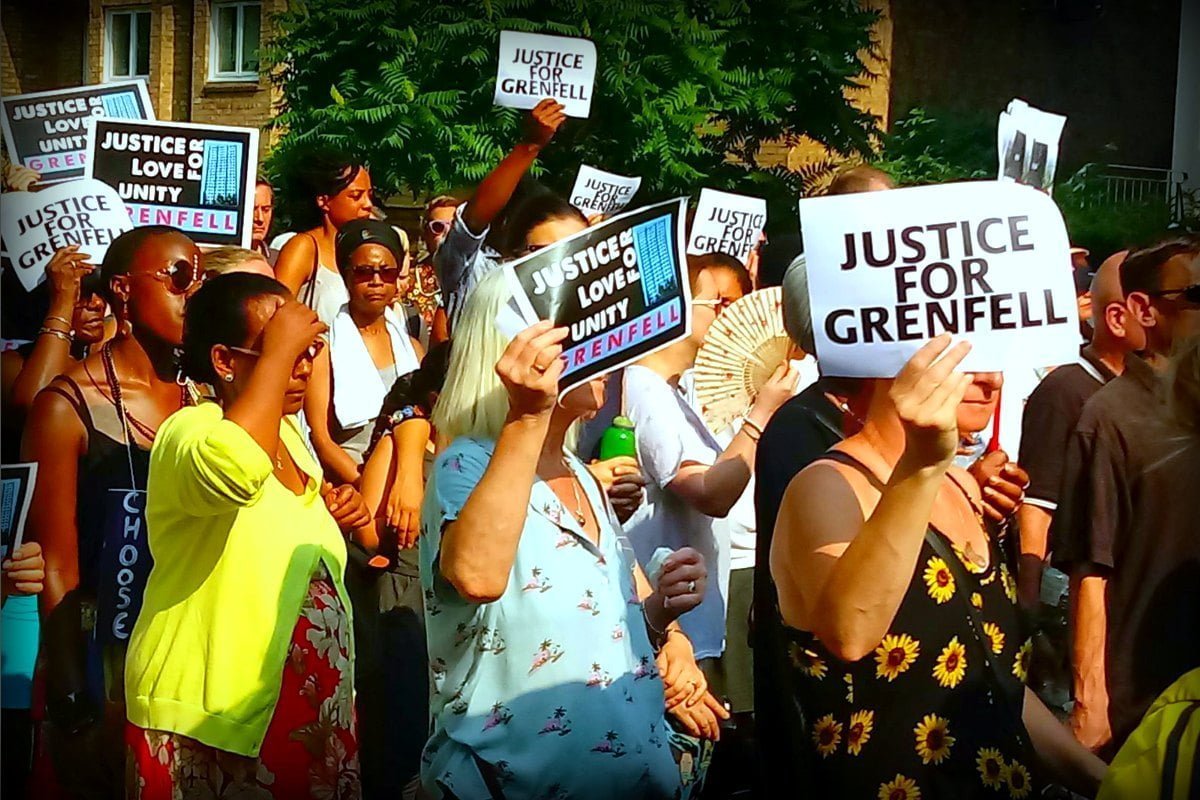 In an attack on the Grenfell Action Group, O’Hagan says that there was never any mention about cladding in their community blog, which continuously raised concerns about fire and safety.
In an attack on the Grenfell Action Group, O’Hagan says that there was never any mention about cladding in their community blog, which continuously raised concerns about fire and safety.
It is true that in the long list of concerns and fears, there was nothing about the cladding. But there might well have been if the activists were aware of what materials and components were being used. Unfortunately, a freedom of information (FOI) request that would have revealed the type of cladding used was appealed against and denied on the spurious basis that:
“The K&C TMO is not a public authority as defined by the FOI Act and does not have a duty to respond to information requests made under the FOI Act.”
What residents did pick up on was the complete disregard for fire safety, with multiple issues raised throughout the ‘regeneration’ and before. And for raising their concerns, the Grenfell Action Group were threatened with legal action.
O’Hagan claims that activists “were throwing accusations into the air like confetti at a whore’s wedding”. All the while, he selectively chooses the facts, providing arguments garnered from interviews with the friends of those suspected of guilt, and presenting their narrative as reality.
In one part, as a means of establishing the council’s great “generosity”, O’Hagan highlights the cases of the fraudsters – those who tried to take advantage of the Grenfell disaster by pretending to be former residents of the destroyed tower. O’Hagan asks why “the activists” aren’t condemning these people. He purposely uses the existence of a few fraudsters to give the impression that the council is benevolent, implying that they are being taken advantage of by both the survivors and fraudsters.
This whole attack by O’Hagan is no surprise. Indeed, the media’s role in relation to the Grenfell disaster has been atrocious from the start. From the night of the fire, the Murdoch press, led by the Times, has written smear story after smear story about all those who have fought for justice.
Likewise, under capitalism there will always be the O’Hagans of this world: those who are all too willing to offer up their services at the altar of the establishment; those who would have you hate the people who are being oppressed, and idolise those doing the oppressing.
Class hatred
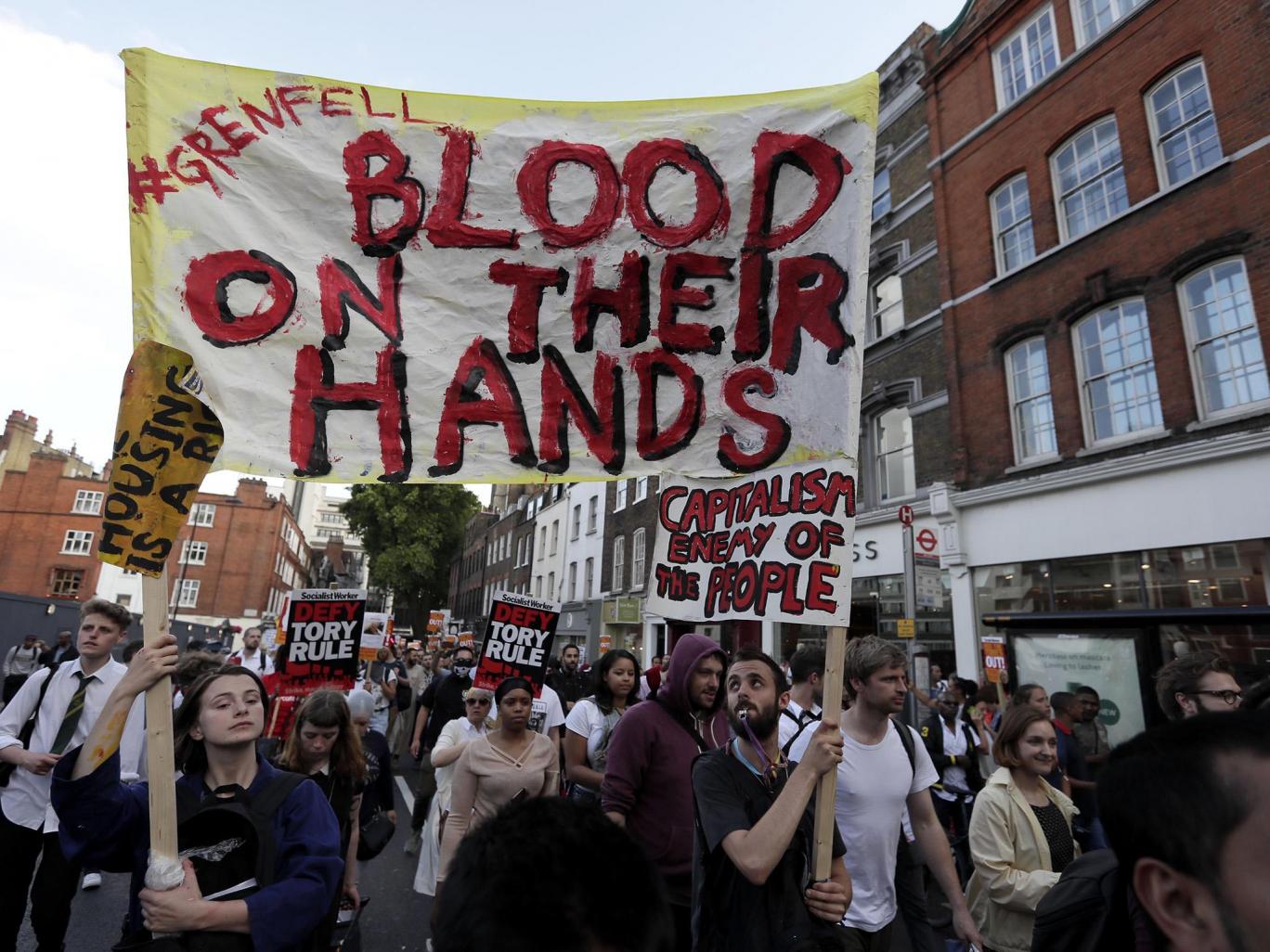 Even now, the Conservative council has bought and donated the Tower in book format to all their conservative councillors – all at taxpayers’ expense.
Even now, the Conservative council has bought and donated the Tower in book format to all their conservative councillors – all at taxpayers’ expense.
Grenfell was not set on fire because the council hates the poor. Nobody has ever argued this. But class hatred and racist attitudes are common in the wealthy areas of K&C. For example, there was one woman who complained after the fire about the prospect of having to live in the same block as Grenfell survivors. This is not an isolated case.
Capitalism rests on prejudice in order to justify the unjustifiable. During the recent local elections, the Tories did their utmost to spin the story of Grenfell. One Tory loose cannon loudly and openly talked of “Grenfell survivors milking the system”.
The local party’s main line, however, was not to mention the Grenfell disaster on the doorstep. Instead, they would talk about collecting bins twice a week. When the tragedy was brought up, the spin put forward was that “it could have happened anywhere”.
It is true there are many more houses at risk. There are many criminals responsible for these murders who are still at large. Tenants in other estates with similar cladding have openly discussed their fears.
And there are many more councils who ignore their residents’ concerns. Many more who preside over managed decline. Many more who use arms-length management organisations in order to escape accountability and culpability. Many more with links to private property developers.
There are many more who hire fire safety consultants simply on the basis of a competitive price: consultants who are willing to argue with the fire service; who advise councils to bury fire safety reports.
But the daily crimes of the others cogs in the capitalist system do not excuse the specifics that led to this atrocity.
Justice for Grenfell
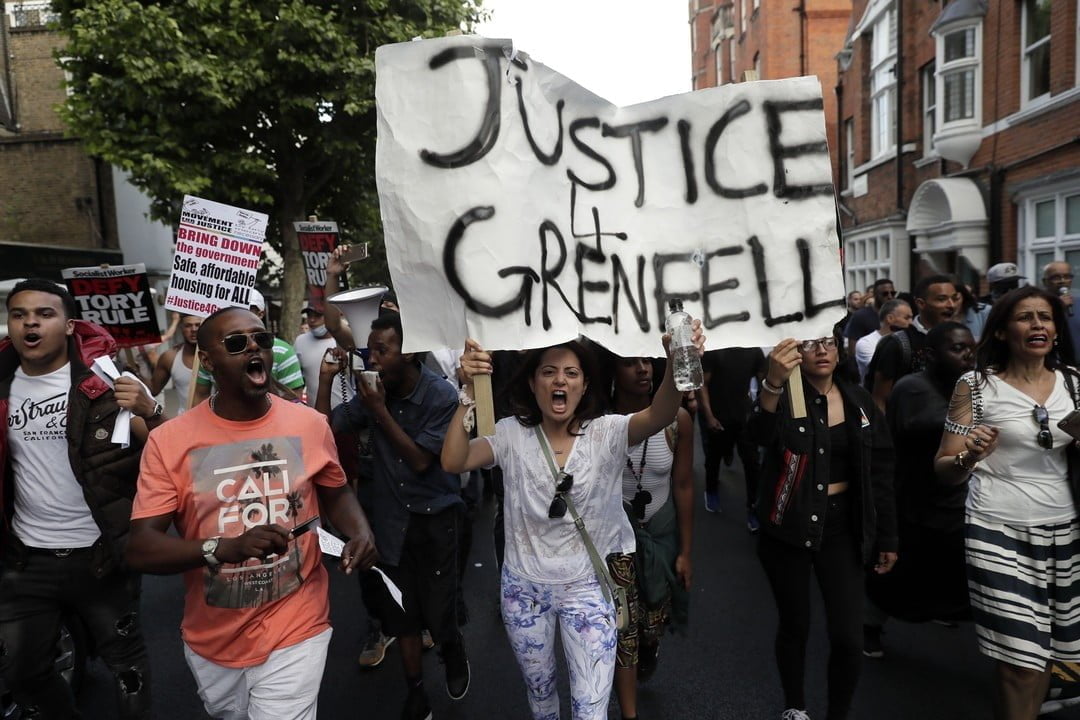 The crux of O’Hagan’s argument seems to be that the officials at K&C council were no worse than regular Tories. He speaks fondly of Nick Paget-Brown, describing how he was only officially wined-and-dined 42 times. This, apparently, is an acceptable level of corruption.
The crux of O’Hagan’s argument seems to be that the officials at K&C council were no worse than regular Tories. He speaks fondly of Nick Paget-Brown, describing how he was only officially wined-and-dined 42 times. This, apparently, is an acceptable level of corruption.
The specifics of the crooks – in the TMO, in the council, in the Rydon construction company, in the Celotex cladding manufacturer, in the architects, in the national government – should all be exposed to the light of day. And those responsible for this atrocity should be imprisoned.
Whether the police and judicial system can deliver this justice is doubtful. What is clear is that the small victories achieved so far have been the result of tireless campaigning. Even the demand for having extra members on the official inquiry committee was not granted without a fight. Yet O’Hagan insults all those who fought for this in an orchestrated backlash.
If a semblance of justice is to be achieved it requires a mass movement across the whole country. North Kensington cannot be left to stand alone. Capitalism produces and gives power to thousands of Feilding-Mellens; thousands of Celotexs and Rydons. It is a system that demands and creates thousands of links between government and big business – all to the detriment of the working class.
Some reforms and regulations may be won in the short term. But the memory of Grenfell will be quickly forgotten by future capitalist governments. The big business lobby will gain the ascendancy again; regulations will fail to be enforced; and the remorseless pursuit of profit will demand the abandonment of so much ‘red tape’, which inconveniently gets in the way of their money-making.
Ultimately, to achieve any genuine justice – and to ensure that tragedies like this will never happen again – we need to get rid of capitalism, a system that puts profit before people. Only in this way can we take power out of the hands of the criminals in business and government, and put control instead in the hands of the working class.

